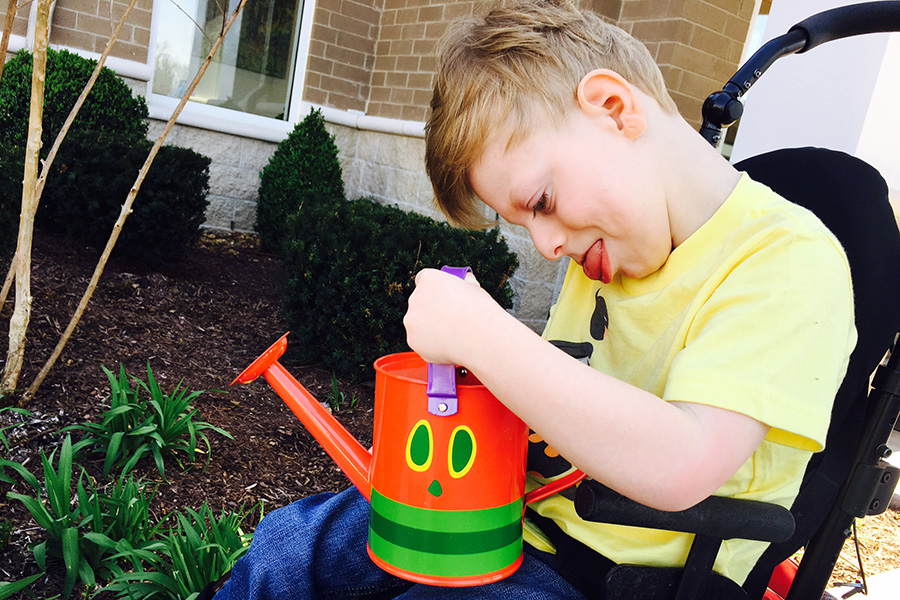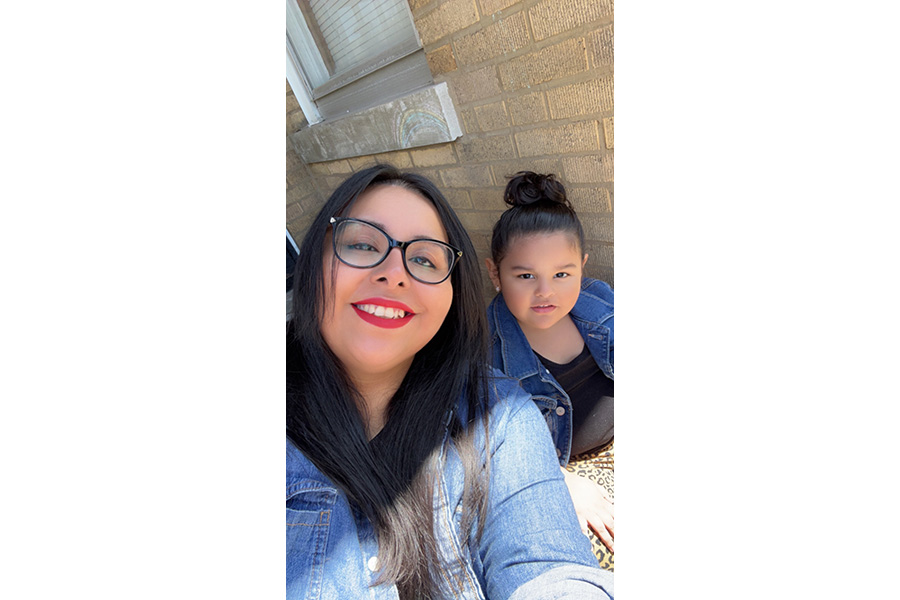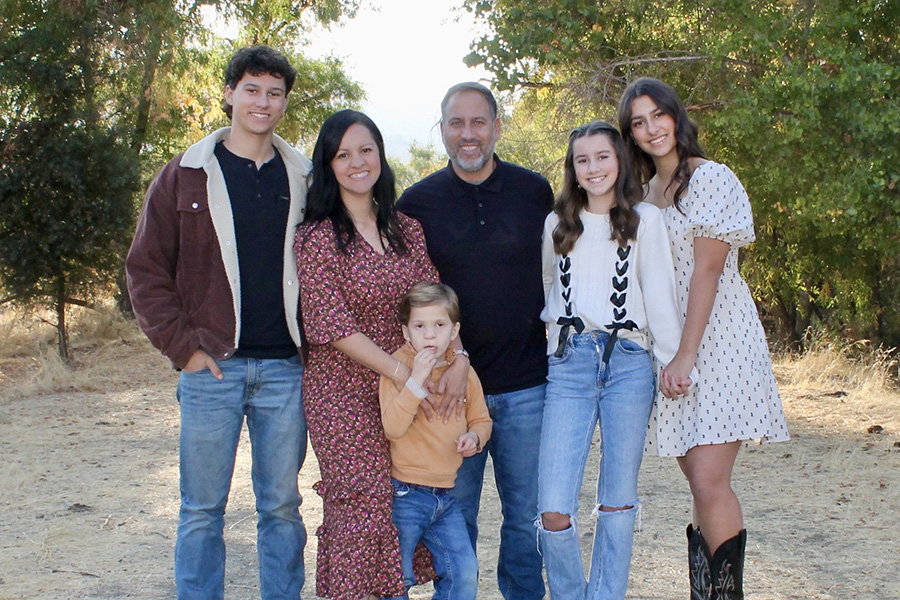I did not grow up on a farm. But I spent all my summers on one in rural Oklahoma. My grandparents turned their plot of red dirt into acres of corn and okra and tomatoes. The garden was sacred. You don’t pull a carrot too soon and you don’t climb the peach tree without permission. The blackberry vines crawling up the back fence, however, were free for the picking.
I loved it all so much that I begged my mother to let me have a little patch of land in our very suburban backyard to start my own garden. We dragged out the hoe, raked up the very nice grass, and marked out my five foot by five foot square of dirt. I changed it up every summer. One year my sunflowers grew so tall they fell over onto the air conditioning unit. Another year the catnip made our calico and tabby cats drunk on for months. Strawberries were my biggest success. They came back every year stronger than ever. When I was eleven, we buried my sweet Golden Retriever under those strawberries.
When my son Charlie who has cerebral palsy received his first wheelchair, I worried about many things and gardening fell off the radar. And yet, walks outside in the sunshine were when we connected the best, when he felt at ease in his body and in the world. And so, the summer he turned four, I gave him his first set of gardening tools – a Hungry Caterpillar trowel, spade, and watering can. Then I propped him in the dirt to practice sitting, hugged him when he cried because dirt was new and weird, and we made our first patch of garden together.
Over the years our practice has changed. He accompanies me to Home Depot or the local nursery and we pick out flowers, tomatoes, maybe a few peppers. He helps me snap the annuals out of their plastic containers. I plant. He waters. I weed. He points out the weeds with great delight. Physical and occupational and feeding therapy can teach him a great deal, but as I’ve come to learn, so can the garden.
-
Hard work really does pay off.
Gardening is hard. It takes strength to wield a rake, which Charlie can do, but when he gets tired, we take breaks and we talk about how difficult things can lead to great things. The leaves he’s moving off our dormant bed are making room for the lilies to rise. The sun that gets hot on our necks while we pull dead buds off the rose bush is also making those roses grow, even as it makes us sweat. In the end, with the leaves cleared, the garden watered, and the bushes pruned, we have created a thing that is both beautiful and nourishing. He gets to see what all the fuss was about and enjoy the fruits of his labor in concrete ways you don’t often get to see in therapy or school.
-
The good things in life take patience.
Something I try to emphasize now that Charlie is ten is that the biggest things in life take time. In a society that focuses on instant gratification, I want him to know that immediate satisfaction is not always possible to achieve and also not always better. In his therapies, he doesn’t always see big leaps like he’d like. I tell him he’s like a garden. All that work will pay off, it’s just not here yet. “Yet” is a powerful word. “Yet” encapsulates hope and trust and rest and work all in one and the garden is the epitome of that.
-
Life is cyclical.
We have seasons for a reason. The earth needs to lie dormant in winter to ready the nutrients for spring. Rain in the spring prepares us for the growing season of summer. Heat and sun in summer readies the harvest for fall. This is true of humans too. Emotions are tough topics to tackle with kids. But I’ve found it easier to help Charlie understand his own moods when I talk about the seasons. We all have our dark days, our stormy moments, our joy-filled sunshine flashes that we want to hold onto. Most importantly, it’s necessary to know that feelings pass. Soon enough a new one will come along, just like the seasons, and there’s comfort in that.
-
Getting dirty is good for the soul.
Charlie used to hate the dirt. He loved so much else about being outside, but dirt was one of his sensory triggers. Certain textures can often be hard for kids with a sensory processing disorder. Discomfort is part of life. Sometimes we just have to deal with it as best we can. The garden is an excellent place to practice discomfort: prickly leaves, slimy worms, tough weeds, soft petals, sticky mud. We’ve worked through them all in our plot of land below our kitchen window. The garden has given us a place to practice tolerance.
-
It’s not about the result. It’s about the process.
Yes, hard work does pay off, but sometimes not always in the way we expect. You can plant tulips bulbs in the fall and not see a speck of color in the spring. The hydrangeas that worked so great last year might shrivel up to nothing this summer. The rose that you thought was pink might bloom yellow. But that’s part of the game of gardening. The result, if it’s different than what you expected, doesn’t take away from the work you put in to it. Charlie will always use a wheelchair. But that doesn’t mean the practice of taking steps with the gait trainer or standing in his stander isn’t worthy of his effort. It’s all part of the process of growing and becoming who he is. He is changing for his efforts in ways we can never guess. Much like our garden, his life will be a surprise.
There are, of course, many more lessons I have learned over the years, first as a child and then as a mother. But the best ones have been with Charlie, out in the sun or the wind or the rain, as we put in the time together in our patch of nature. Even if you’re not a gardener, life has a way of reaching you and your child where you are and teaching you what you need to know to grow.

Jamie Sumner is a special needs mom and author.
Jamie-Sumner.com
Author of the middle-grade novels:


















